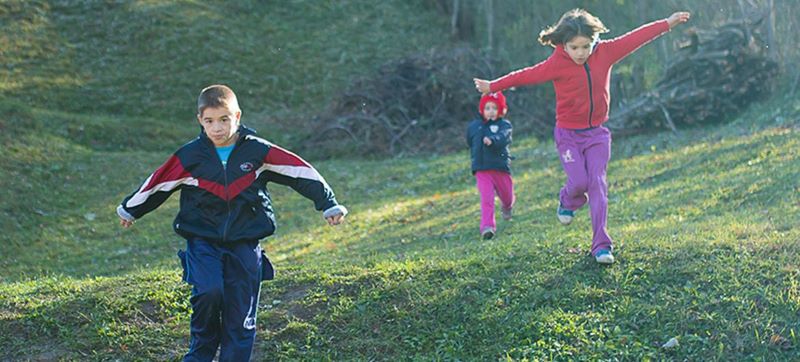 Obesity
Obesity
Report finds direct link between pandemic and childhood obesity in Europe
The COVID-19 pandemic has led to increased obesity in school-aged children in Europe, the World Health Organization (WHO) office for the region said in a new report issued on Wednesday, sounding the alarm for action.
Results from 17 countries showed that boys and girls aged seven to nine spent more time looking at screens and less time playing outside, mirroring an increase in overweight children in this same age range.
More than 50,000 children were surveyed from 2021 to 2023, following the start of the worldwide shutdowns in March 2020.
A nuanced picture
“The picture that this report paints is nuanced; in some countries there were positive changes, such as more families eating together, but there were also some concerning findings, including an increase in unhealthy dietary habits and sedentary time,” said Dr. Kremlin Wickramasinghe, WHO/Europe’s regional adviser for nutrition, physical activity and obesity.
The report revealed that 36 per cent of children increased their time spent watching television, playing online games or using social media during the weekdays, and 34 per cent increased their recreational screen time on weekends.
Other key highlights include 28 per cent of children experienced a decrease in time spent on outdoor activities during weekdays, 42 per cent reported a decline in happiness and wellbeing and one in five reported feeling sad more frequently.
On a more positive note, families reported an increase in consuming home-cooked meals, eating together, and cooking meals together with children.
Create supportive environments
Dr. Wickramasinghe hoped the report will push countries in the region to take urgent action to improve nutrition and physical activity by creating environments that support healthy behaviours.
“We cannot afford to ignore these trends. In our region, one in three children is living with overweight and obesity, and already fruit and vegetable consumption is low,” he said.
Dr. Ana Rito, Head of the WHO Collaborating Centre for Nutrition and Childhood Obesity and co-author of the report, underscored its significance.
“Equipping the region and Member States with concrete evidence of problematic outcomes of global pandemic-based behavioural changes will enable us to approach future health crises with greater strategy and sympathy,” she said.
A brighter future
The pandemic highlighted the urgency of tackling childhood obesity, WHO said, and countries need to build back better by prioritising healthy eating and physical activity for all children.
WHO recommended measures such as marketing restrictions, taxes on unhealthy products, clear nutrition labels on foods and school-based programmes to improve diets and promote physical activity.
The agency said the new data “can be used to inform and improve current policies across the region and shape much-needed plans for future emergencies and pandemics that may lead to interruption of educational processes or school closures”.
Support Our Journalism
We cannot do without you.. your contribution supports unbiased journalism
IBNS is not driven by any ism- not wokeism, not racism, not skewed secularism, not hyper right-wing or left liberal ideals, nor by any hardline religious beliefs or hyper nationalism. We want to serve you good old objective news, as they are. We do not judge or preach. We let people decide for themselves. We only try to present factual and well-sourced news.






